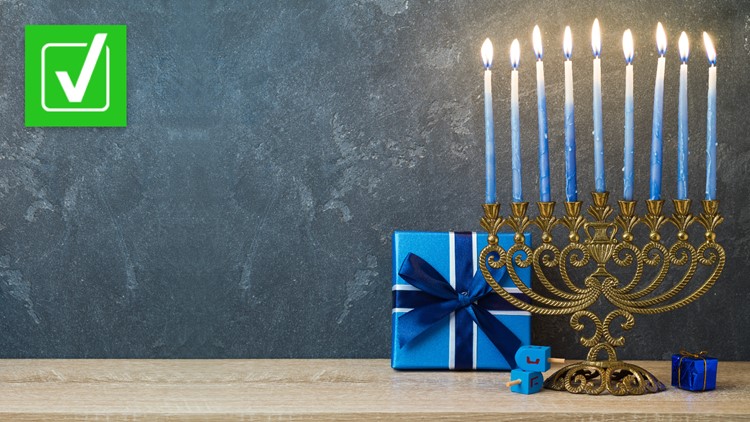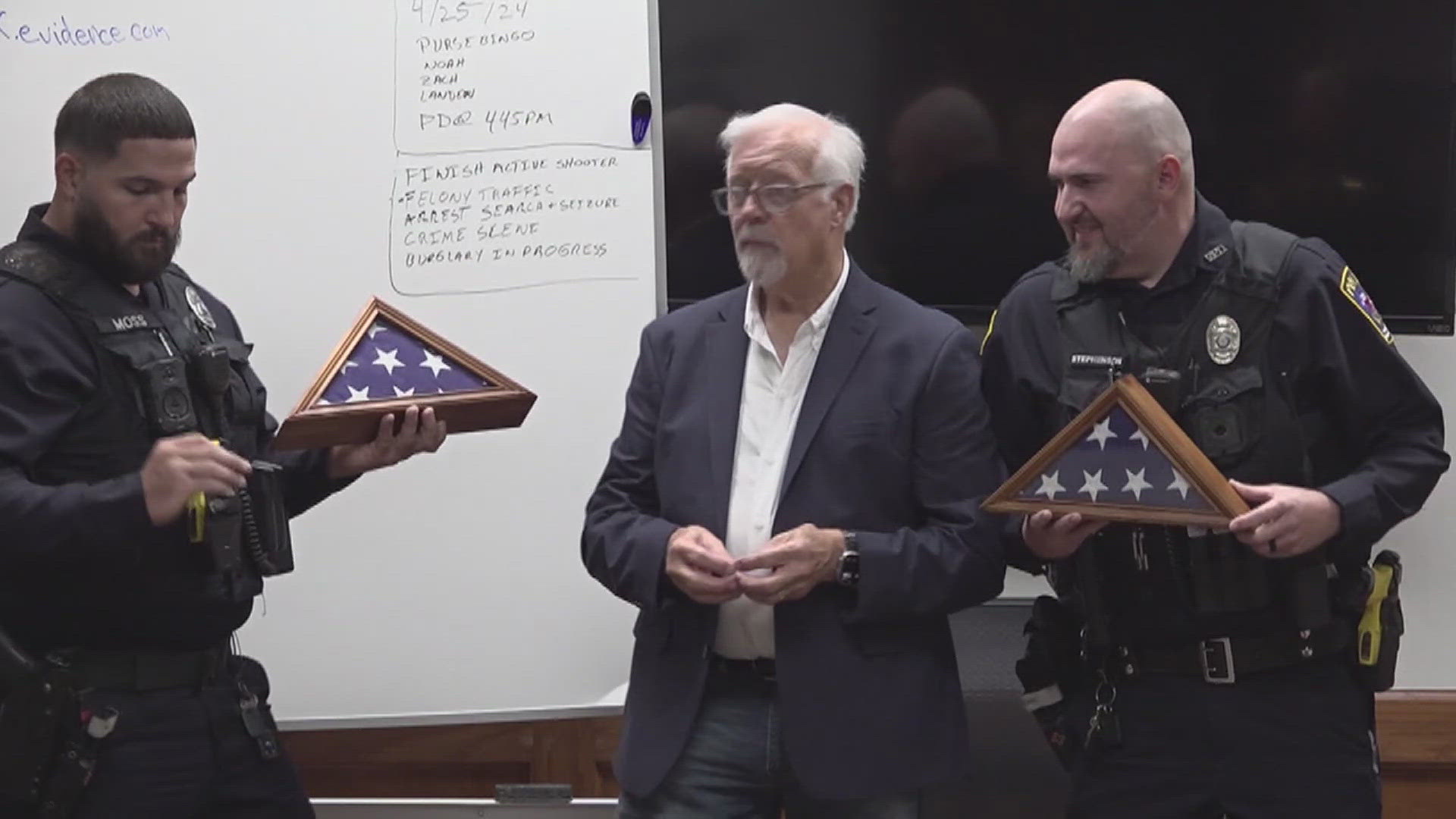Hanukkah is the eight-day, wintertime Jewish “festival of lights.” In Hebrew, “Hanukkah” means “dedication,” and the holiday commemorates the rededication of the Holy Temple in Jerusalem following the Jewish victory over the Syrian Greeks in 165 B.C.E, according to the Jewish Alliance of Greater Rhode Island.
Every year, Hanukkah begins on the 25th day of the Jewish month of Kislev, meaning the holiday can fall anywhere between late November and late December on the Gregorian calendar. This year, Hanukkah celebrations began on Nov. 28 and will continue through Dec. 6.
Throughout the year, the Jewish community celebrates several important holy days, including Passover, Yom Kippur and Rosh Hashanah. Several online articles (like this one, this one and this one) claim Hanukkah is considered a minor Jewish holiday so the VERIFY team asked the experts to weigh in.
THE QUESTION
Is Hanukkah considered a relatively "minor" Jewish holiday?
THE SOURCES
- Chabad-Lubavitch Media Center
- Jewish Alliance of Greater Rhode Island
- Jewish Virtual Library
- The Pluralism Project at Harvard University
- Rabbi Moshe Sokol, Ph.D., dean and professor of Jewish philosophy at the Lander College for Men of the Touro College & University System
- Rabbi Elyse Wechterman, executive director of the Reconstructionist Rabbinical Association
- Rabbi Michael Wolk, senior rabbi at Temple Israel in Charlotte, North Carolina
- Rachel Serkin, director of education at the Museum at Eldridge Street in New York City
THE ANSWER
Yes, Hanukkah is considered a relatively "minor" Jewish holiday.
WHAT WE FOUND
According to the Jewish Virtual Library and The Pluralism Project at Harvard University, Hanukkah is considered a minor religious holiday because it is not mentioned in Jewish scripture but instead included in the Books of the Maccabees. Hanukkah also does not require abstaining from work, as many Biblical Jewish holidays require.
“Hanukkah is the only post-biblical Jewish holiday. All of the other Jewish holidays are explained or appear somewhere in the biblical canon, from the Bible all the way down into the later writings,” said Rabbi Moshe Sokol, dean and professor of Jewish philosophy at the Lander College for Men.
In the United States, Hanukkah seems like it is one of the more popular Jewish holidays because of its proximity to Christmas, according to Sokol, but he says “you can't compare the significance of Christmas, which is foundational for Christians, with the significance of Hanukkah.”
“It's post-biblical, has no origins in the divinely revealed scripture and it celebrates a later event, and to us, that's always important but it's nowhere near as important as Christmas is for Christianity,” Sokol told VERIFY.
Rabbi Michael Wolk serves as the senior rabbi at Temple Israel in Charlotte, North Carolina. He told VERIFY Hanukkah has been turned into a “Jewish version of Christmas,” in the U.S., even though he says the holidays have nothing to do with each other.
“Even though this is not an officially Christian country, Christianity is the default faith in the United States, and Christmas is everywhere. There's certain amounts of commercialism attached to Christmas at this point and Jews are not immune to that lure,” said Wolk.
Sokol says other Jewish holidays, like Passover, which celebrates the birth of the Jewish faith and their exodus from Egypt; Rosh Hashanah, the start of the Jewish New Year; and Yom Kippur, the Day of Atonement, are considered more sacred holidays than Hanukkah.
Rachel Serkin, the director of education at the Museum at Eldridge Street in New York City — located in one of the first synagogues erected in the U.S. by Eastern European Jews — says while Hanukkah is considered a minor holiday, Jewish families celebrate it in different ways.
“One of my most important takeaways is Judaism, like all faiths, is not a monolith. Especially in America, we have many different sects or groups of Jews. The universal things of lighting the menorah, playing dreidel, and, of course, eating foods that are fried in oil are all very important, and different communities might just have different ways of celebrating but there's no right or wrong way to celebrate Hanukkah,” said Serkin.



